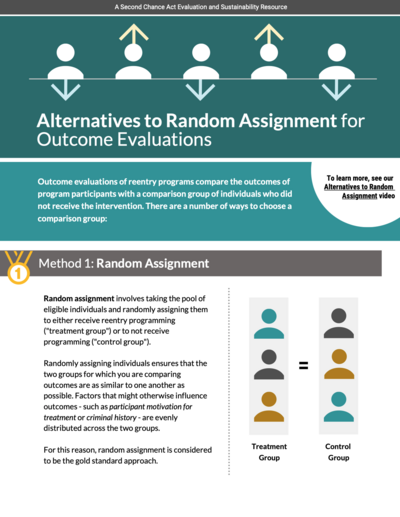- Home
- Multimedia
- Infographic Alternatives Random Assignment Outcome Evaluations
Infographic: Alternatives to Random Assignment for Outcome Evaluations
Infographic
Topics:
Evaluation and Sustainability
Reentry Week
Second Chance Act
Reentry population:
Both Adults and Youth/Young Adults
Date:
Source:
RTI International and the Center for Justice Innovation
Infographic: Alternatives to Random Assignment for Outcome Evaluations
Random assignment is considered the gold standard when conducting program outcome evaluations because it ensures that both groups are very similar and that findings reflect program effects. However, random assignment is not always feasible. Alternative, but less rigorous, approaches to developing comparison groups include:
- Quasi-experimental designs (e.g., waitlist and matched comparison groups), which can be used to limit systematic differences between the treatment group and the comparison group
- One-group pre-test/post-test designs compare outcomes for program participants before and after they receive the intervention
This infographic from the Evaluation and Sustainability Training and Technical Assistance (ES TTA) team at RTI International and the Center for Justice Innovation (formerly the Center for Court Innovation) provides an overview of random assignment and possible alternative approaches to evaluating reentry programs.
Related Resources:




